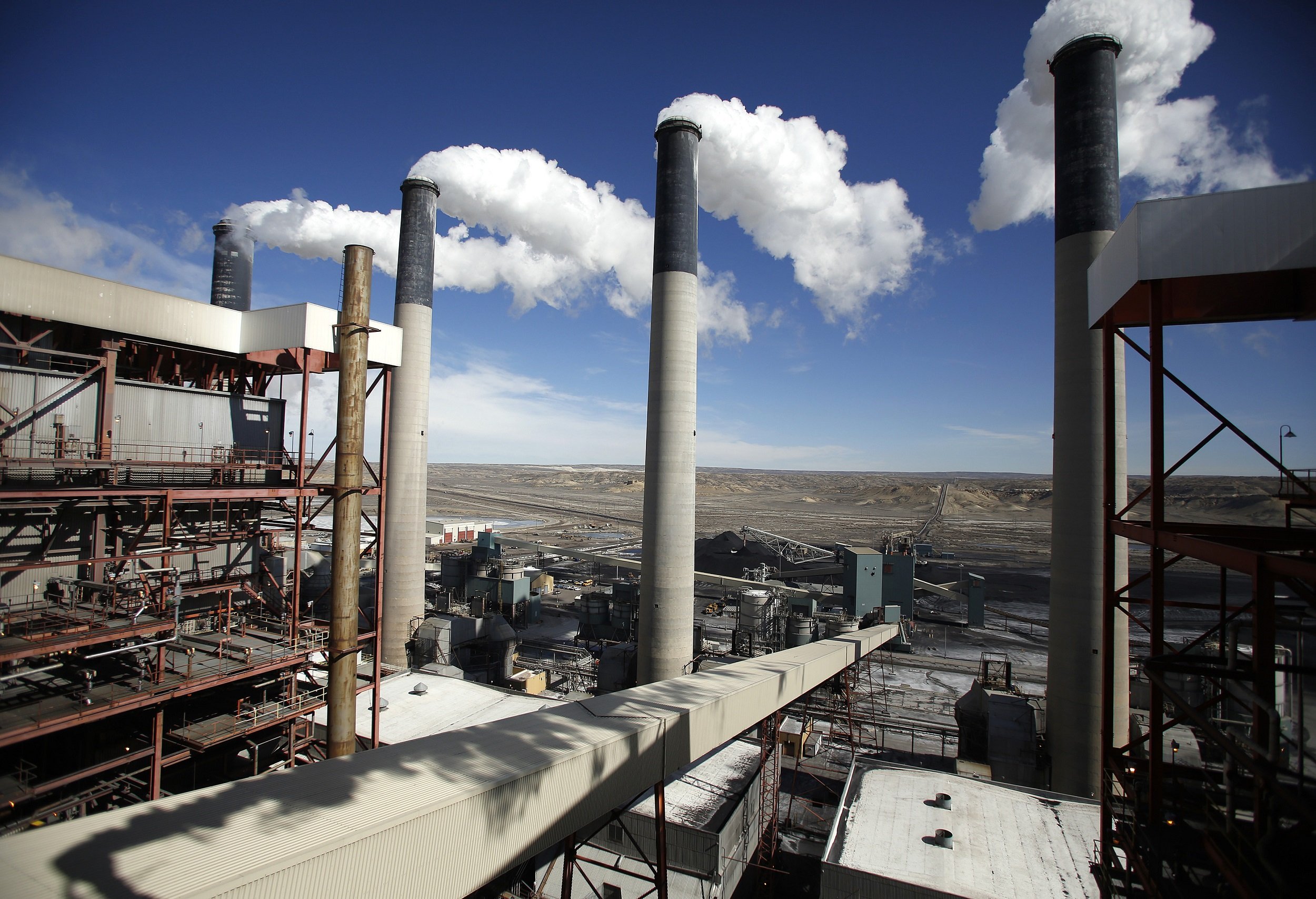
Global industrialization has poured carbon in the sky, and now we must pay the price: the nasty specter of climate change, with its sinking islands and superstorms. But what if we could bring some of that carbon dioxide back down to earth?
Direct air capture (DAC) is the scooping of carbon from the sky. Unlike traditional carbon capture and storage, DAC doesn't try to simply capture carbon from chimneys and factory flues; instead it scoops carbon directly from the atmosphere, no intermediate steps necessary. Better yet, the most sophisticated DAC plants don't even need much electricity to function—they run on excess heat produced by other industrial processes. The temperatures needed to capture a ton of atmospheric carbon dioxide are "less than what is needed to boil your cup of tea," says Graciela Chichilnisky, founder of direct air capture company Global Thermostat.
The CO2 removed from the air by plants like Chichilnisky's has a variety of applications: It can be frozen into dry ice, introduced to greenhouses as plant food, used to carbonate beverages and even injected into oil wells in a process known as "enhanced oil recovery."
"A lot of demand for CO2 is unmet," says Chichilnisky. "In fact there's a market for it that exceeds one trillion dollars per year."
Companies like Chichilnisky's want to profit from this unmet demand, an aggressive example of doing well while doing good. Global Thermostat's pilot plant at the Stanford Research Institute in Menlo Park, California, has been profitable since construction finished, says Chichilnisky: The cost of producing compressed carbon dioxide via direct air capture is "minuscule" compared to compressed CO2's sale price. Now she wants to build plants elsewhere, using the excess heat from power plants and foundries. "If the technology shows the way to be profitable is by cleaning up the atmosphere then this will be the strongest motivation for the world to attack climate change."
So can DAC save the world? Not quite yet. There's a lot of concern among environmental advocates as to whether DAC can ever scale to the extent where it makes any dent in the carbon we're currently pouring in the atmosphere. Moreover, despite the cost claims of Chichilnisky and others in the nascent DAC industry (David Keith, founder of Global Thermostat's would-be competitor Carbon Engineering, says his technology can currently extract carbon dioxide from the atmosphere at a cost of less than $250 per ton), the jury's still out on whether the cost of atmosphere-extracted carbon could ever get low enough to provide DAC plants with a profitable business model.
In a Proceedings of the National Academy of Science study co-authored by MIT Professor Howard Herzog, he estimated the cost of air capture at "on the order of $1,000 per ton of CO2." Later, speaking to Yale Environment 360, Herzog claimed anyone who put the cost of DAC significantly lower was "either not being totally honest or they're deluding themselves."
But the most pressing concern environmentalists have is that, if the DAC business gets too much backing, industry and policymakers might see it as a substitute to mitigation. Speaking to The Guardian, Almuth Ernsting, director of environmental watchdog Biofuelwatch, called DAC a "techno-fix fantasy" that "will be welcomed by oil companies because they distract attention from the obvious solution of cutting fossil fuel use."
But with reports already out that we might have passed several climate change "tipping points"—even if we stop emitting carbon dioxide tomorrow, for instance, a one-meter rise in sea levels within the next 200 years is now inevitable—removing carbon from the atmosphere as well as mitigating emissions just might be the only thing we can do to preserve the current state of the climate.
Uncommon Knowledge
Newsweek is committed to challenging conventional wisdom and finding connections in the search for common ground.
Newsweek is committed to challenging conventional wisdom and finding connections in the search for common ground.
About the writer
To read how Newsweek uses AI as a newsroom tool, Click here.





